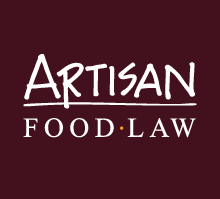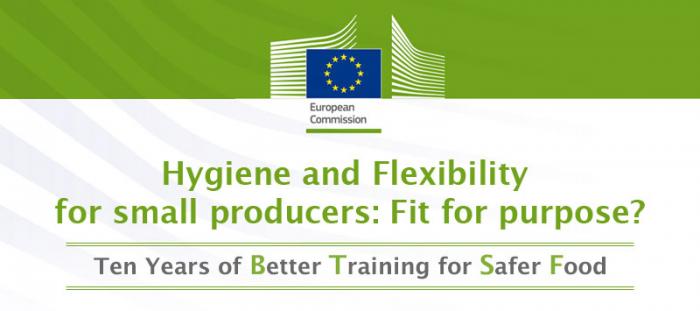EU food hygiene rules – are they strangling small scale food production?
Do EU hygiene rules unduly constrain artisan food producers in the quality and range of food they are able to make? Artisan Food Law is working with Slow Food International on a study across Europe into this critical issue. The first stage will focus on artisan cheese and dairy production and we will be using the opportunity presented by Slow Cheese in Bra, Italy next month to further our research.
The refrain that EU food hygiene rules are excessive and place a disproportionate burden on small scale food producers is often heard, usually expressed in a despairing tone of voice. What may be reasonable in regulating industrial and factory processed food is out of all proportion to what is necessary in small scale food production.
There is also a significant disparity in the approach taken to interpretation of the rules and enforcement from one EU country to another. Austria, for example, is known for taking a more innovative and flexible approach in the application of hygiene rules while Bulgaria appears to be towards the other extreme.
The general food Regulation (EC) 178/2002 sets the overall food law framework across the EU and the core provisions regulating food hygiene, often referred to as the ‘Hygiene Package’, comprise:
- Regulation (EC) 852/2004 on the hygiene of foodstuffs.
- Regulation (EC) 853/2004 setting out specific hygiene rules for food of animal origin.
- Regulation (EC) 854/2004 laying down rules for the organisation of official controls.
Food hygiene requirements are generally set out in the annexes to the regulations while in England the Food Safety and Hygiene (England) Regulations 2013 provide the domestic framework within which the Hygiene Package is enforced.
The disproportionate burden placed on small scale producers receives some regulatory recognition. The Hygiene Package provides for the possibility of derogation or exemption from certain requirements; the adaptation of others; and the exclusion of some activities from the scope of the Hygiene Package in the adoption of national measures. These possibilities are subject always to the requirement that food placed on the market must be safe.
Derogation or exemption from the rules
In the case of a derogation or exemption, a Member State may authorise food business operators not to apply specified requirements of the Hygiene Package in particular circumstances. The opportunities to do so are defined in the Hygiene Package and must be notified at the draft stage to the European Commission. Occasionally, provisions within the Hygiene Package authorise a degree of flexibility that may be exercised by the competent authority of the Member State. Look for wording such as “unless otherwise authorised by the competent authority” in the regulations.
A derogation or exemption may, for example, permit premises where foods with traditional characteristics are exposed to an environment necessary for the part-development of their characteristics to comprise of walls, ceilings and doors that are not smooth, impervious, non-absorbent or of corrosion resistant material and permit natural geological walls, ceilings and floors.
Adaptations to support traditional food production
Adaptations provide a Member State with the possibility to adapt the requirements laid down in the Hygiene Package in particular circumstances. The main purpose of adaptations is to enable the continued use of traditional methods of production, accommodate the needs of a food business subject to specific geographical constraints and adapt requirements on the construction and layout of premises.
Exclusions from the rules
The activities excluded from the general food law Regulation (EC) 178/2002, and in consequence the Hygiene Package, include primary production for private domestic use and the domestic preparation, handling or storage of food for private domestic consumption. Member States can adopt more stringent national rules if considered necessary.
‘Primary production’ is the rearing or growing of products of the soil, of stock farming, hunting and fishing; including harvesting, milking and farmed animal production prior to slaughter.
Activities excluded from the scope of the Hygiene Package include the direct supply, by the primary producer, of small quantities of primary products to the final consumer and to local retail establishments directly supplying the final consumer. This would cover, for example, raw milk, eggs, honey, fruit, vegetables and wild game, subject to national rules.
The European Commission has published guidance on the operation of flexibility in the Hygiene Package for food businesses that provides further illustrations on how the rules are intended to work.
That’s a brief outline of the theory, what we would really like to know is how does it work in practice? We want to hear about and document any problems small scale food producers have encountered. How were they overcome? What impact did they have on the business? What was the outcome? We want to hear from small scale food producers across the EU.
The European Commission is reviewing the fitness for purpose of food law now, so if change is needed now is the time to make the case. Contact us with your stories and experience. You can e-mail us at info@artisanfoodlaw.co.uk, use the Contact Form or call us – the number is at the foot of this page.
Let's make food law work for small producers and not the other way around!





